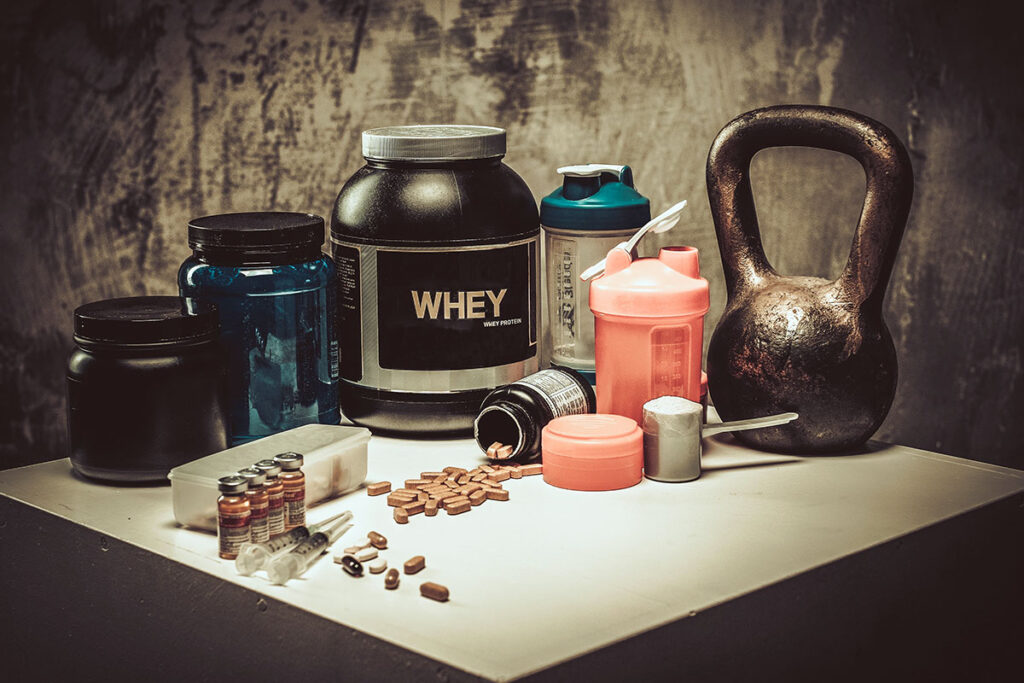In today’s world, men have more options than ever when it comes to achieving their fitness goals. One of the most popular options nowadays is supplements. You can go to any fitness store or browse through online shops, and you are bound to come across a multitude of supplements that promise to take your fitness game to the next level. However, the question that lingers is whether these supplements are effective or dangerous for men’s health. In this blog post, we dive deep into the world of supplements and explore the most popular ones and how they may impact your overall health and fitness.
Protein Supplements
Protein supplements are incredibly popular among fitness enthusiasts. They are perceived as the holy grail of muscle gain, and for good reason. Protein is essential for muscle repair and growth. However, what matters are the sources of protein. Protein supplements are heavily processed, and some of them contain added sugars and artificial flavors that can do more harm than good to your health. Instead, opt for a protein supplement that’s made with natural ingredients like whey protein concentrate, which is rich in amino acids that the body needs for muscle growth.
Creatine Supplements
Creatine supplements are another popular option. They are beneficial for endurance, muscle growth and strength gains for a short period. However, excessive consumption can lead to dehydration, cramping and kidney damage. It’s best to use creatine under the guidance of a nutritionist or a certified trainer.
Fat Burner Supplements
Fat burner supplements are designed to increase metabolism and help you lose weight. Some of these supplements contain caffeine, which can increase heart rate, cause anxiety, headaches and sleep disorders. Unfortunately, fat burners are not regulated by the FDA, and some supplements on the market can cause harm to the body.
Testosterone Supplements
Testosterone supplements are marketed to help men with low testosterone levels. However, there is no scientific evidence that these supplements can actually increase testosterone levels. In some cases, testosterone supplements can increase the risk of prostate cancer and heart disease.
Multivitamin supplements
Multivitamin supplements are marketed as a one-stop-shop for all the nutrients your body needs. However, they are not a substitute for a balanced diet. Studies have shown that the body can only absorb a limited amount of vitamins and minerals in a day. An excess of these can also lead to harmful side effects. So, do you really need individual supplements if you take a multivitamin daily?
Supplements are everywhere, and it can be hard to keep track of what we need and what we don’t. Multivitamins are a popular choice since they generally contain all the essential vitamins and minerals a person needs in one convenient capsule. But, is it necessary to take additional individual supplements if you’re already taking a daily multivitamin? Keep reading to find out.
The answer to this question is not straightforward since it depends on a lot of factors, including your diet, lifestyle, and even genetics. If you have a balanced diet and lifestyle, then a daily multivitamin should be enough to cover your nutritional needs. However, if you have specific health concerns or dietary restrictions, you might need to take additional individual supplements to make up for any deficiencies your body may have.
Let’s take Vitamin D, for example. Many people don’t get enough Vitamin D from their diet or sunlight exposure, particularly those living in colder climates. A daily multivitamin will usually contain a small amount of Vitamin D, but if you’re deficient, you might need to take an additional Vitamin D supplement to reach the optimal levels. The same goes for other vitamins and minerals, like magnesium and calcium, which are essential for healthy bones.
On the other hand, some nutrients can interact with each other, making it difficult for your body to absorb them properly. For example, taking a daily multivitamin containing iron at the same time as a supplement high in calcium can affect the absorption of both nutrients. Therefore, it’s essential to talk to your healthcare provider before taking any additional supplements to ensure you’re not doing more harm than good.
It’s worth noting that supplements are not a substitute for a healthy diet and lifestyle. While taking a daily multivitamin and individual supplements can help you reach optimal nutrient levels, they can’t make up for an unhealthy diet or lifestyle choices. Maintaining a balanced and varied diet rich in fruits, vegetables, lean protein sources, whole grains, and healthy fats, combined with regular exercise is the best way to ensure your body gets all the nutrients it needs.
Summary
In the world of fitness supplements for men, there are pros and cons. It’s important to remember that supplements are not a substitute for a well-balanced diet and regular exercise. While some supplements can be effective like protein supplements, it’s essential to also prioritize natural sources of protein like eggs and lean meat. It’s also crucial to consider factors like side effects and long-term impacts of these supplements on your health. Before adding any supplement to your routine, consult a nutritionist, and do thorough research to make an informed decision. Overall, men’s fitness isn’t about taking shortcuts, but it’s about adopting a sustainable and healthy lifestyle that contributes to long-term wellbeing.

